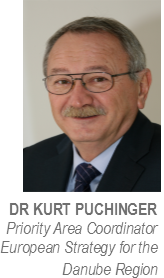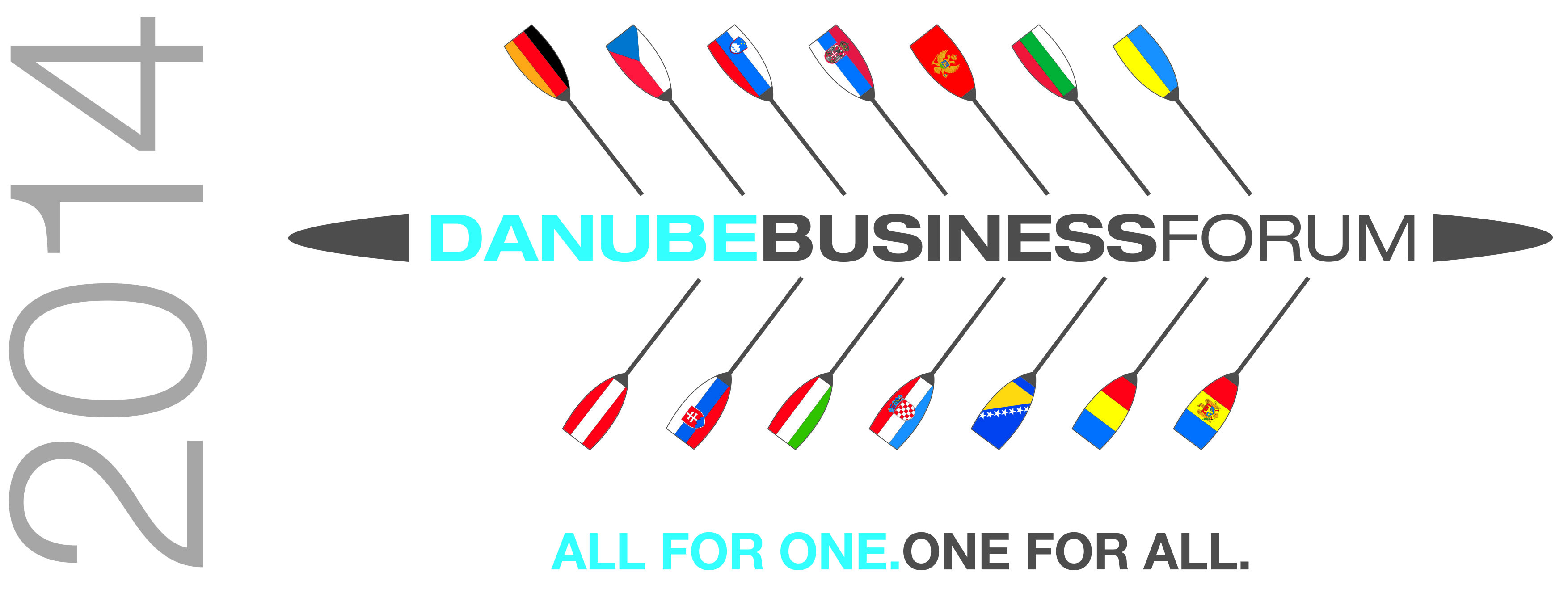Objective of the Danube Business Forum
The objective of the Danube Business Forum was to provide a platform for institutional and corporate leaders to exchange views on emerging regional issues related to the EU Danube Strategy, utilize resources in the fields of energy, transport, agribusiness and IT, and discuss mutual investment opportunities. Forum aimed to encourage partnerships between companies, cities and regions to build prosperity and the competitiveness of the Danube region.
During the three-day Danube Business Forum the following topics were covered:
- Development of cooperation in the energy sector, intermodal transportation, agribusiness and ICT,
- Environmental protection and sustainable use of natural resources of the Danube basin,
- Strengthening regional economic partnerships to improve investment opportunities,
- Support of the competitiveness of enterprises, including cluster development, and improving institutional capacity and cooperation,
- Creation of a knowledge economy, the active role of science, innovation incentives and encouraging the creative industry for new jobs.
The Danube region is a natural spatial, economic and cultural environment, and since 2010 it is covered by the EU Strategy for the Danube Region. This area extends from the Black Forest to the Black Sea, and includes 14 countries and over 215 million inhabitants. The countries in the Danube basin are: Germany, Austria, Hungary, Czech Republic, Slovakia, Slovenia, Bulgaria, Romania, Croatia, Serbia, Bosnia and Herzegovina, Montenegro, Moldova and Ukraine.

“Geography matters! That is why The Danube Business Forum is the ideal meeting platform of political and business leaders to forge even stronger ties. It provides the foundations for creating regional partnerships in business, technology, innovation. The opportunities for close cooperation in energy, transport, agribusiness and ICT are plentiful and directly contribute to the triple bottom line: economic, social and environmental success. It is the Forum for us all”.
Forum Organization
Central European Development Forum, CEDEF, a well-known expert organisation focused on sustainable regional development in the EU and Media Invent, in cooperation with the Universities of Novi Sad, Belgrade and of Maribor, Ministry of Economy of the Republic of Serbia, the Government of the Autonomous Province of Vojvodina, Serbian Chamber of Commerce, the Ministry of Mining and Energy of the Republic of Serbia, Ministry of Construction, Transport and Infrastructure of the Republic of Serbia, Ministry of Agriculture and Environmental Protection of the Republic of Serbia, the City of Belgrade, public enterprises Electric Power Industry of Serbia and Telekom Serbia, and leading companies like Delta Holding, Schneider Electric, Naftachem, organized an international gathering the THIRD DANUBE BUSINESS FORUM, from 27th to 29th October in Belgrade and Novi Sad, Serbia.
Program Council Members of Danube Business Forum were:
Prof. Dr. Miroslav Vesković, Chancellor of the University of Novi Sad
Prof. Dr. Ana B. Bovan, President CEDEF
Prof. Dr. Radovan Pejanović, Vice-Chancellor, Faculty of Agriculture, University of Novi Sad
Marija Desivojević Cvetković, Vice President of Delta Holding
Vlado Markanović, Director of Media Invent
Jovanka Arsić Karišić, Chairman of the Board CEDEF
Beneficiaries
Institutional and corporate leaders, officials and experts from government and the private sector, international organizations and academic communities, representatives of the diplomatic corps and a large number of chambers of commerce and industry and investment agencies from the Danube and wider region participated in the event. The Forum was attended by hundreds of participants over three days, from numerous municipalities, cities and regions of all Danube countries and beyond.
Regional networking as an objective

“The EU Strategy for the Danube Region is only as good as its effects that are appreciated by the people in the region. The different groups of people in the different regions of the Danube area have different expectations regarding the effects of this EU regional policy strategy. The expectations include an obvious increase in wealth and improvement of the quality of life, better opportunities to find and keep a job, a stronger feeling of safety and security, better public services, clean drinking water, better wastewater management, better functioning cities, and much more. Wealth, social justice and individual perspectives for the future based on education and training are the only guarantee to continue the stable and peaceful development in Europe.”
The aim was to develop the EU into "Europe of regions", an intertwined network of areas that cooperate across borders according to their specific characteristics and common interests. Such interweaving makes Europe firmly linked, economically and politically. Until recently, regional cooperation was mainly taking place at the micro and secondary level, it was only through the establishment of the first macro-region, the Baltic, that began this process. The Danube Strategy is the second European macro-region.
Many challenges and potentials exist in the Danube region. For example, although the 2800 km long Danube waterway annually caries only 50 million tons of cargo, and 800 km long Rhine 330 million tons of cargo, the Danube is much more polluted than the Rhine. Countries in the Danube strategy so far proposed and initiated more than 1,000 joint projects, and some examples of goals to be achieved by 2020 include: removing the "bottlenecks" to make the Danube waterway usable for at least 300 days a year, to develop the ports along the way and increase cargo transport for at least one-fifth; complete a European fast speed rail network in the Danube; restore sturgeon habitation in the Danube, reduce agricultural pollution; reduce the risk of flooding, develop the use of renewable energy, such as hydro and geothermal; introduce environmentally friendly production processes in small and medium-sized businesses and clean Danube mine fields.

